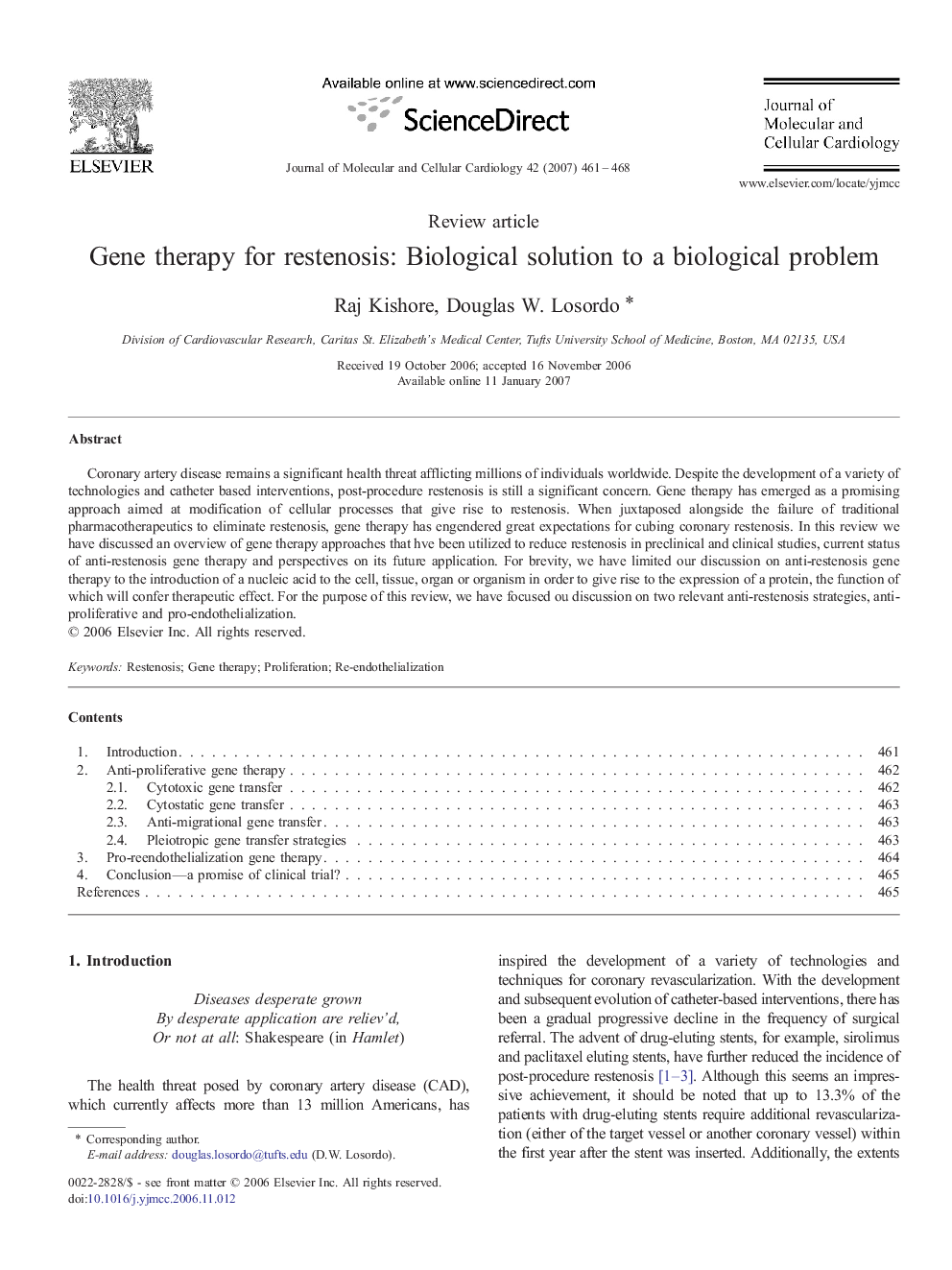| Article ID | Journal | Published Year | Pages | File Type |
|---|---|---|---|---|
| 2192114 | Journal of Molecular and Cellular Cardiology | 2007 | 8 Pages |
Coronary artery disease remains a significant health threat afflicting millions of individuals worldwide. Despite the development of a variety of technologies and catheter based interventions, post-procedure restenosis is still a significant concern. Gene therapy has emerged as a promising approach aimed at modification of cellular processes that give rise to restenosis. When juxtaposed alongside the failure of traditional pharmacotherapeutics to eliminate restenosis, gene therapy has engendered great expectations for cubing coronary restenosis. In this review we have discussed an overview of gene therapy approaches that hve been utilized to reduce restenosis in preclinical and clinical studies, current status of anti-restenosis gene therapy and perspectives on its future application. For brevity, we have limited our discussion on anti-restenosis gene therapy to the introduction of a nucleic acid to the cell, tissue, organ or organism in order to give rise to the expression of a protein, the function of which will confer therapeutic effect. For the purpose of this review, we have focused ou discussion on two relevant anti-restenosis strategies, anti-proliferative and pro-endothelialization.
